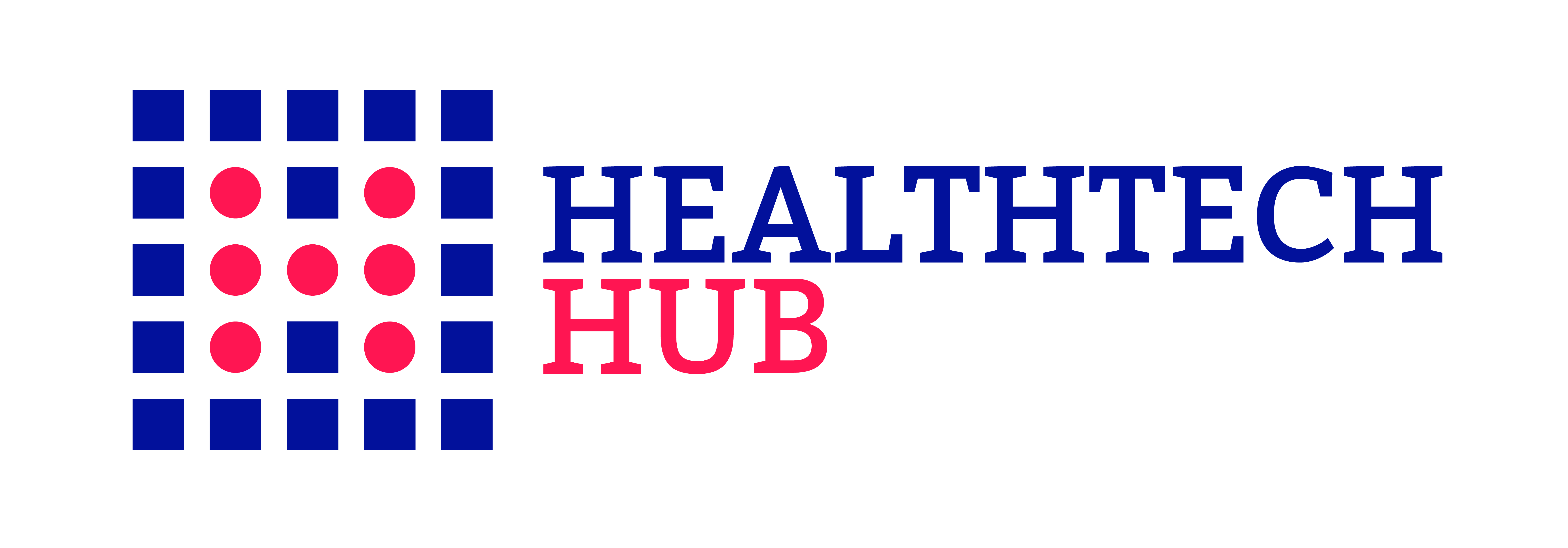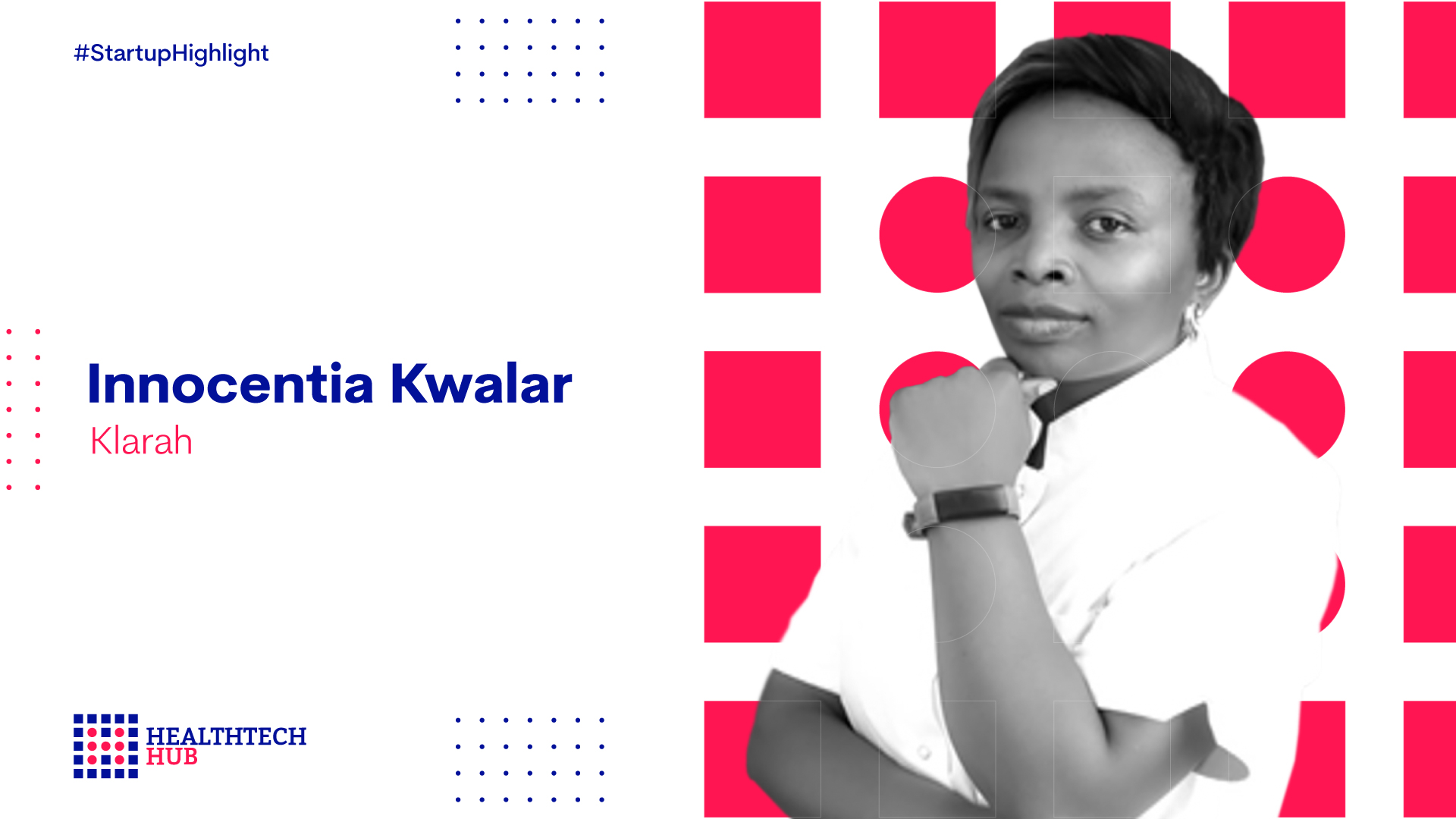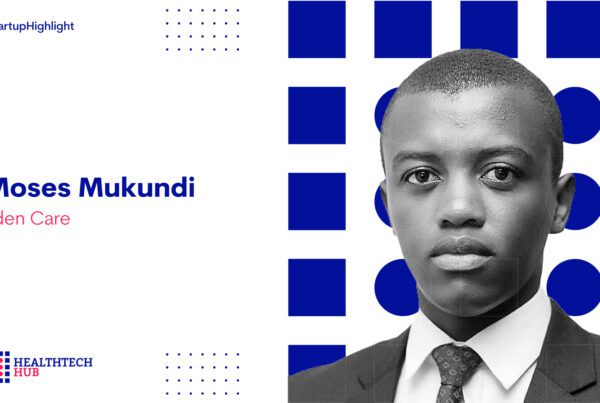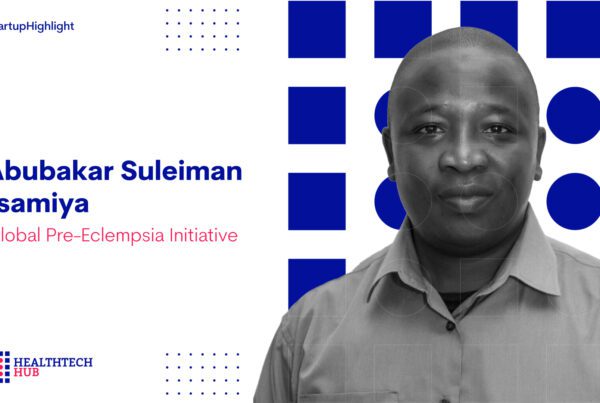Innocentia. Good to have you today. You are a highly qualified nurse, and you have worked in the healthcare sector in Cameroon for quite some time. Please take through your journey as a nurse in Cameroon. What was it like
Thank you very much, Hamza. It’s a pleasure to talk with you and share this unique experience. It has been an exciting journey, full of ups and downs, sweet and bitter moments.
But then, at the end of the day, having the pleasure of putting a smile on people’s faces, helping them get back on their feet and do what they could not do before because of their ill health, has been fulfilling.
I started my career in 2001 when I had just left the university. It’s worth noting that in our country, that is when nursing was getting into the university Milieu.
It was also a time of a new breed of nurses getting into the field, and you can also imagine what it took. There are so many people who were like, “Okay, a Degree in nursing? What does it mean? What does it imply? Where are you placed in the organogram of nurses”. Especially when most of us went into it directly from high school and had no prior experience. It was four years in the university but also introduced to nursing.
So, there were also these hiccups in settling in at the hospital level. But then, with time, we have come along, and I have had the opportunity to work with both the rural and urban areas. I’ve had the opportunity to work in both the French and the English sections of countries. I’ve had the opportunity to work in both the Public and Private sectors, and it has been a beautiful ride. As I said, it has been challenging, but then it has been beautiful.
My work also has enabled me as a nurse to grow and improve.
I got in with a degree, but now I have a PHD. with my years of experience and my academic qualification, I’m also looking for opportunities to train the young ones and
I also teach at the university to train the next set of nurses and impart to them what I have been able to harness over time; in the form of experience and education.
In summary, the journey has been a long one, but it has been an exciting one. So much evolution has occurred in a context that we are yet to get there. Now it is towards the other part of my work as a nurse that I found a new passion, or I was able to sit down and look, is it just sitting in the hospital and waiting for people to fall sick and they come to the hospital and meet us? And then we go through the cycle again and again. So, I was asking myself, what can we do differently? Especially with what technology has offered to us.
And, of course, the experience with my father made me see that we can merge technology and health and get healthcare, especially proactive healthcare, to the communities to see how we can help individuals. That has been my journey from the nursing side to administrative, to academia, and now being an entrepreneur and innovator. It has just been a melange of everything, but it has been exciting and worthwhile. Thank you.
You have been a nurse for over ten years. In your opinion, what are the main challenges facing the nursing industry currently in Cameroon?
Yeah, Many facets. First, we still have the challenge of harmonizing in a country. In the beginning, I said we were getting nursing was getting into the university milieu, and on the field, it was like, “who are these breeds of nurses?”, “where will they be put in the public service classification?”, “How will they be functioning?”, “What would be their job description?”. Unfortunately, like 20 years down the road, that hasn’t changed significantly because some people still think that nurses should be secondary-level nurses with an e-level and three years of training in nursing training schools.
So, universities train nurses as though they shouldn’t be called nurses, and this affects the registration also into the order of nurses that we find in our country because we have a demand for nurses, midwives, lab technicians, and Allied Health Professionals which is recognized by the Ministry of Health and before, they were registering us. After all, I am registered in that order. Unfortunately, They said to all the students that I was training. They came back and said, “Madam! we are finding it difficult to register into the order because they say that we can not register because we are not “SRMs”; they put it in our context.” So, to me, that is the first challenge that we have.
We need to be able to harmonize. We need to get to the level where we can define who truly a nurse is in our context and work with that.
Interestingly, they do not want to register this set of nurses. Then the government recruits and works with them because their training is validated.
The next challenge is with our numerous nursing schools in our context. It’s a plus because we are training many nurses. But, of course, the number of nurses we have needs to be increased. No wonder we are in a state of fewer than 12 nurses to a population of 10,000. That is mainly insufficient, and nurses would be overworked. But, then, with these numerous nursing schools, you can imagine their curriculums and accreditation will also be as vast as that.
Our challenge is getting an umbrella institution or umbrella council that can regulate the training and, of course, regulate the practice. We are yet to get there as a nation.
The final challenge I want to discuss is the nurses’ remuneration level. It’s also a massive challenge in our city. The remuneration is not standard across the board.
For those working in the private sector, you know their remuneration differs from those working in the public sector. That doesn’t speak well for the professionals as nurses because people working in the private sector are underpaid, so you may want to see that they are underemployed.
So, it’s a huge challenge for us to be able to get there. As an individual, having a council would address so many of these things and put us on a better footing. Thank you.
So we now dive into the exciting part, The Uber for nurses, Klarah. Tell us about this. How did it start? Why did you start it? How did it start?; Why did it start?
So, in answering your preliminary questions I said, I was able to have some mind-boggling questions. Should I remain in the hospital and keep seeing these people coming again and again? They find it difficult to meet up with their appointment because they don’t want to wait for a long time because when they come, the doctors or nurses probably have emergencies and all of that. The frustration was real, and I wondered what we could do differently to help these people. But then, the story with my father made it very clear how I could use technology, be proactive in healthcare, and help people. So, I’ll tell the story quickly of my father.
Recently, my father has not been very well. He has been down in health, and he lives in a town that is miles away from where I work. Being the health personnel of the family, each time he has a crisis, I’m called upon. At times, when I say I don’t want to go. I ask my mother, “What is the situation?” She cannot give updates probably because she doesn’t know and hasn’t been given the information, and even when she’s given the information, she hasn’t understood what has been said.
You can’t have access to the team that is talking with him, and so I have to move. So, each time he has a crisis, I’m on the way, and it’s a journey by road. I take about 12 hours and the entire night to travel and meet him. So, you can imagine how he was also draining me. And his crises were widespread. So, at times I move, and by the weekend, I am there and have to stay in a hospital with him, and then he is discharged, and I’m on my way back, and by the time, I’m being called up again, he has a crisis, and I have to do that routine again. You can picture the scenario.
I have my siblings who could probably get a better picture when I am there, but I have a brother of mine who is based in Germany. He was particularly worried, and each I was not there, he’d be like, what is now happening? Why is he always having to go to the hospital? Why is his crisis so frequent? I consulted with him and said, “We can reduce my movements. Let’s recruit a nurse and let the nurse come to the house when nothing is at stake, frequently check on his vitals, do physical assessments, and share the results with me so that I make an interpretation of the results and pick up the red flags and say, “Okay Mama at this point, take Papa to the hospital.” When we do that, there is no emergency, and nothing is at stake. He can be patient enough.
Remember that it’s no longer the same story when he goes into a crisis situation. It’s frustrating because you go, and probably the doctor is not on site because he is attending to some other person. So, there is no emergency if he has to go when nothing is at stake. He can also maybe just be patient and it will make it light on him. So, that’s what we did and his number of crises significantly reduced because we were able to monitor, we were able to follow up that his medications were given as prescribed, we were able to follow up on the doctor’s appointment. Above all, we were able to pick up the red flags and say, “At this point, yes, he is not in a crisis. They think these figures it is announcing that something may just be around the corner. So, you can go to the hospital now.”
The narrative changed significantly and I said to myself, “aha!”; I would say, that was the aha moment. So, this could be what the other people I was wondering about in my daily walk with them are also facing because, at my job site, I could see people who kept coming when they had a crisis. You’re just asking, “You had this appointment. Why did you not respect your appointment?” and so on. And when they are better I really don’t want to be coming to the hospital because I will stay the entire day.
To summarize, that experience with my father made me know that I could use my phone and follow up with my father without necessarily moving because the nurse was taking all of what he was doing and sending it to me. There are times when his feet say that it’s swollen. And I would say, “Take a picture and send it to me,” and ask, “What else are you monitoring?” So I’m able to say let him turn around, and you snap and I’m able to see, so that shows the discussion we are making, and it changes the narratives significantly. So, I said, why don’t you also blow this out on a larger scale and help others. Link them with nurses that are around.
Remember, I have said in a context that we have many nursing schools and probably many nurses being trained. We are not yet there if we have to use the index by WHO but then we have a reasonable number of nurses, and in every neighborhood, you would be able to get a nurse living there.
That is how Klarah was born. We are leveraging technology to match nurses to patients so that quality healthcare can be offered in the comfort of their homes. So, That’s the story of Klarah. Thank you.
Wow, wow, that’s quite a touching story. Innocentia. In what markets is Klarah currently operating, and how do you plan to make Klarah stand out from the rest and not leave out? Which segment are you primarily focusing on for now?
Okay, in what market? Of course, I’m based in Cameroon, so Cameroon is the bedrock, and now we are exploring the Cameroonian territory. We have had nurses who can comfortably care for clients across the national triangle. In the foreseeable future, we are looking at actually getting beyond the boundary of Cameroon because we know that the problems that are real to us are real to other African countries. We also have people who have left their loved ones back at home and do not know what is going on and are called up only when there is a crisis, and you can imagine the Adrenaline rush when that happens. So, We are looking forward to expanding into other territories in no particular order, but we have countries like Rwanda, Nigeria, and Ghana.
As we open partnerships, we will hopefully expand to them. The customer segment, for now, is people living in the diaspora because, to us, they are the pairs. So, we have so many people who have left the shores of Cameroon and Africa and are in the diaspora, and we want to give back to their parents because they are where they are because of their parents. But, unfortunately, there is always this disconnection, and they don’t know what is happening. Most of them are called, “Papa has a crisis,” or “Mama slumped when she was in the kitchen,” When they reach the hospital, It’s a choke.
What happened? Last week, I sent money for Mama to go to the hospital, and we don’t know when she finally went to the hospital or if she decided to prioritize some social activities. You know, so you are lost. So, I’m highlighting that our customer segment is people in the diaspora because they are the ones we are talking to and are worried about their loved ones. So, you can send them off, and you pay directly, and we can take care of their health. And inform you on what is going on in their lives concerning their health, and you can have the peace of mind that you deserve and continue with the work that you are doing.
But then we have an interesting definition of the diaspora because a diaspora also is that person who has left the village and he’s in the town, and he’s working, and the parents are back in the village. Okay, you can still sign them off. So, it’s all part of our customer segment. So, those are the people we are looking at. And how do we expect to stand out?
We look forward to when Klarah becomes a household; Klarah will be the one-stop shop for all your health problems community. Some ventures are similar, but then we differentiate ourselves because we use qualified, trained nurses. Most other people, who work with community health workers, are readily available, which is a promising venture, but they are not as qualified as nurses. So, If you have a nurse, you know that the care you will have is way beyond just basic care. So, that’s how we want to stand out.
According to the Journal of Global Health Reports, primary health care (PHC) in most African countries is nurse-led. However, nurses are still facing adverse challenges. What frameworks should be implemented for strengthening health systems in a nurse-led Primary healthcare setting?
First, regulation, You agree with me that in all health tech, there is the challenge of policies that regulate that sector.
But it’s even more challenging to regulate the nurses carrying out these activities at the primary healthcare level. We are trying to get around that, to see that the state first recognizes each nurse that signs off.
We have data that shows that you have been trained and are registered into one association or the order, which gives you the right to practice. So, you’ll bear with me that if we do not start thinking about putting policies in place that will regulate the functioning of these nurses. It’s evident that, okay, I’m signing up as a primary healthcare nurse, and this is what it takes to do it and maybe some license that makes you function in that.
Remember, also, I’m talking in a context where I have already said that we don’t have a council, which means that we are still far from attaining or achieving that objective. It is worth noting that the nurses we work with assert that they truly are nurses recognized by the state. And we do not leave them there. We coach and work with them even while on the field. Those are things we can do to improve that sector. As I said, the key to making it work is regulation.
Klarah won a spot among the top 5 startups in the Novartis – Norrsken HealthTech Hub 2021 challenge. What has this experience been like for you?
It has been a beautiful experience. Remember, I am from the bedside to the boardroom. It’s no joke. When we won that award, it allowed me to work with great mentors, making my transition less bumpy than it would have been.
I am not yet there, and I don’t want to claim that I’m a tech expert to be a super entrepreneur after a year of being in the HealthTech Hub. But at least my being there has facilitated my journey. I have been in the hospital taking care of patients and in the classroom teaching students. This is a new sphere for me, but if we have covered grounds, it’s because I was part of the hub. Apart from our training and mentorship in the HealthTech Hub, the financial aid they gave us was a huge boost.
At least we were able to acquire space. We were able to recruit workers and begin the production of the app. We did certain other things that, otherwise, we would only have been able to do with financial assistance. So, being in the HealthTech Hub has been a great pleasure, and I have learned a lot. I know I am still learning, but it has been a beautiful time, and I have learned a lot.
What should we expect from Klarah in the next 2 – 3 years?
What should we expect from Klarah? I will summarize what we are expecting from Klarah. I’m always excited when talking about Klarah because I know that Klarah will be a relevant arm helping to resolve local problems with local solutions. So, In the next 2 – 3 years, we are looking at scaling beyond the borders of Cameroon.
As I said, we are looking at making partnerships and growing in such a way that we will not only be leveraging people in the diaspora to pay for the services back home, but people at home also will be able to log in and get care from Klarah Wherever and whenever they will have. That is what we are looking at to be a true uber for nurses where you’ll be able to log in, get a nurse, and get attended to in the comfort of your home.
In your opinion, what does the future of HealthTech Hub in Africa look like? Shall we have some unicorns in the next future?
Ah, I think so. I also look at some of the ventures going in or around in the phase and am confident we will have some unicorns. For example, I am convinced that Klarah will be a unicorn, and there are so many other ventures that I look at them and say, “Yes, we are going to have unicorns in the nearest future.”
I always like to look at the future of HealthTech Hub in Africa in this way. HealthTech Hub will do to healthcare what the mobile phone did to technology. If you have a flashback, look at what a mobile phone did to communications. You know, how it was able to ease communication and all of that. HealthTech Hub will revolutionize healthcare in Africa. Also, you will no longer have situations where people must come and cure up. The issue of cures is always very sickening.
So we will no longer have situations where you are in the rural area, and there is no specialist there. You will not have access to specialist care. So, it will bring about health equity also. We will no longer have situations where you must beat the traffic to change your geographical space to get health personnel, lab technicians, doctors, or nurses. With a click on the right app, you will have those services even in the comfort of your home. Of course, more and more, the health situation will be well understood by the clients themselves. This also is a crucial point because many patients are in the hospital. The health personnel needs to take the time to explain what is wrong with you. But if you have someone attending to you.
One-on-one in the comfort of your home, you have all the time to ask your questions, what you have not understood, what it means, and so forth. So, that is just what HealthTech Hub will do for Africa, and we look forward to having a healthier population because of HealthTech Hub. One last thing I will talk about is that I also know a venture still in the HealthTech Hub space that is making health accessible by just transporting items. So being in the rural area will no longer disadvantage people. They will be able to access the supplies or the skills, thanks to HealthTech Hub.
Thank you for doing this interview with us today, Innocentia. Any last remarks to the Cue Africa audience?
Thank you for having me on your site. Thank you for spreading more light on what Klarah is doing. For the audience, where you’ll find yourself when Klarah reaches your nation. But, we definitely will be attending to you also. We have policymakers in the audience of Cue Africa, the issue of regulation is always key, and many countries have yet to have policies regulating the running or functioning of HealthTech Hub companies. So, that is one thing that we want to look at. But then I know the future is bright. To the audience, we are looking forward to making healthcare more affordable, accessible, and available to every person on the African Continent. Thank you very much.





